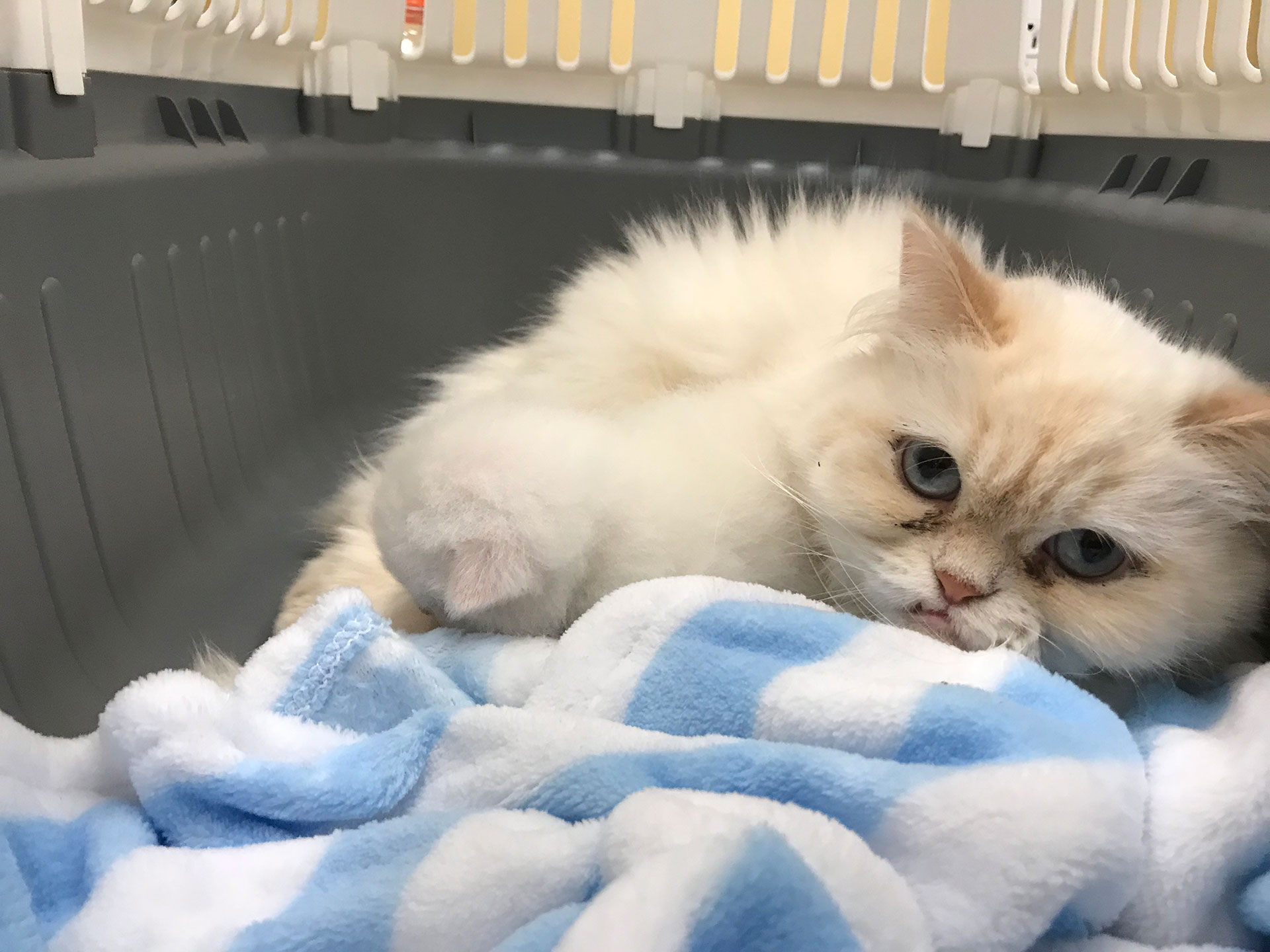
It is estimated that up to 75% of cats may be carriers of feline herpes virus.
Kittens will often display signs of respiratory disease along with ocular problems.
In the adult cat, when the dormant virus is reactivated, the signs are often limited to the eyes. There may be a slight discomfort, with one eye held partially closed, sometimes redness and conjunctivitis may be present or, in more severe cases, corneal ulcers. A fluoresceine test is used to confirm a corneal ulcer.
The first step is, of course, to obtain an accurate diagnosis. Therefore, the multiple causes of ocular infections must be investigated such as Calicivirus, Chlamydophila, Mycoplasma, Bordetella and Herpes virus. A thorough examination and sometimes more sophisticated tests such as PCRs are indicated.
Because Herpes virus can never be completely eliminated, a multimodal approach is often required.
Use of a lysine supplement along with an immune modulator, as well as topical or oral antiviral drugs will usually allow for adequate management of most cases. Topical antibiotics are often used to control secondary infections.
It is always of the utmost importance to evaluate an eye problem as soon as possible to maximize the chances of a successful treatment.
